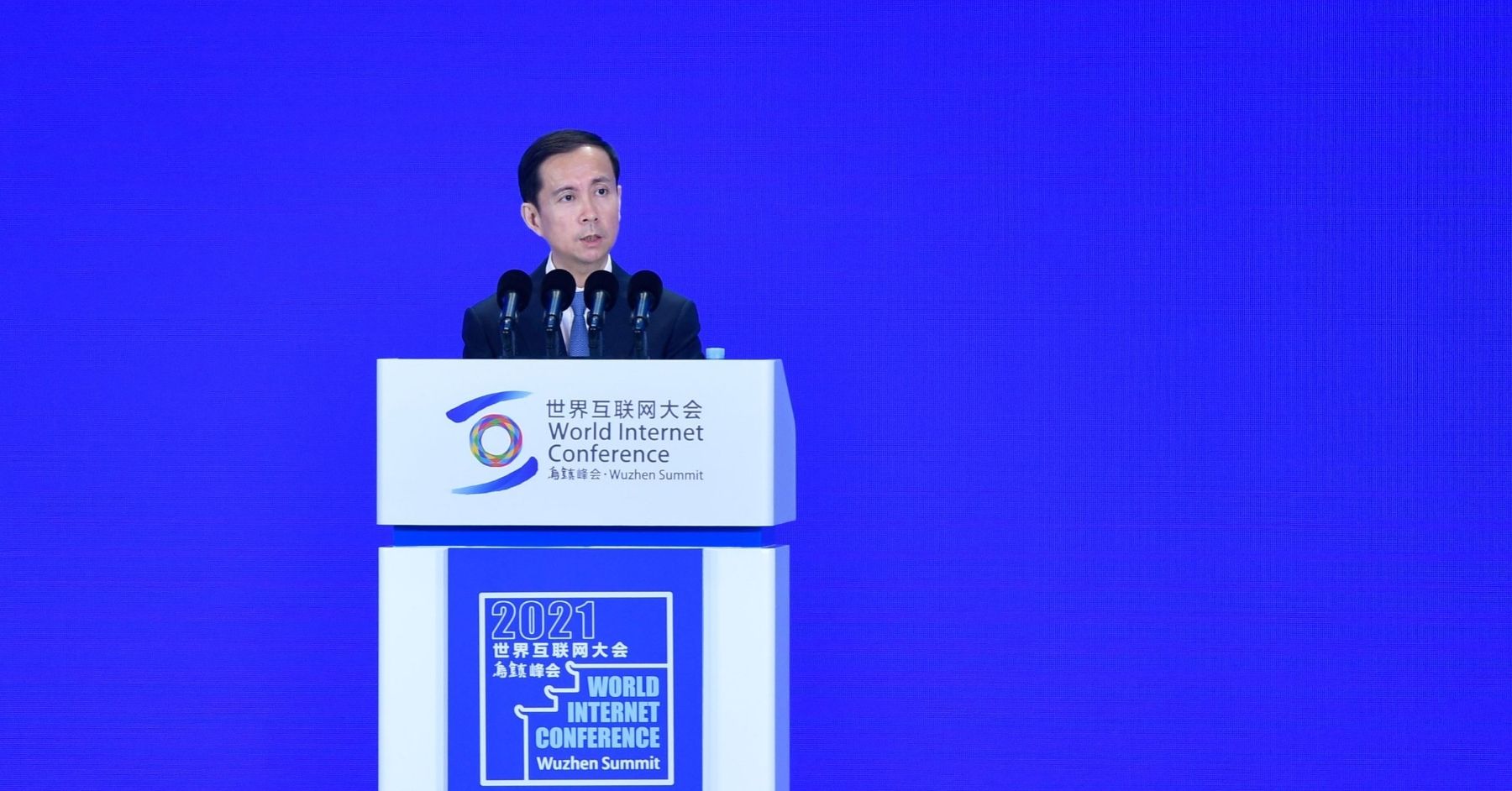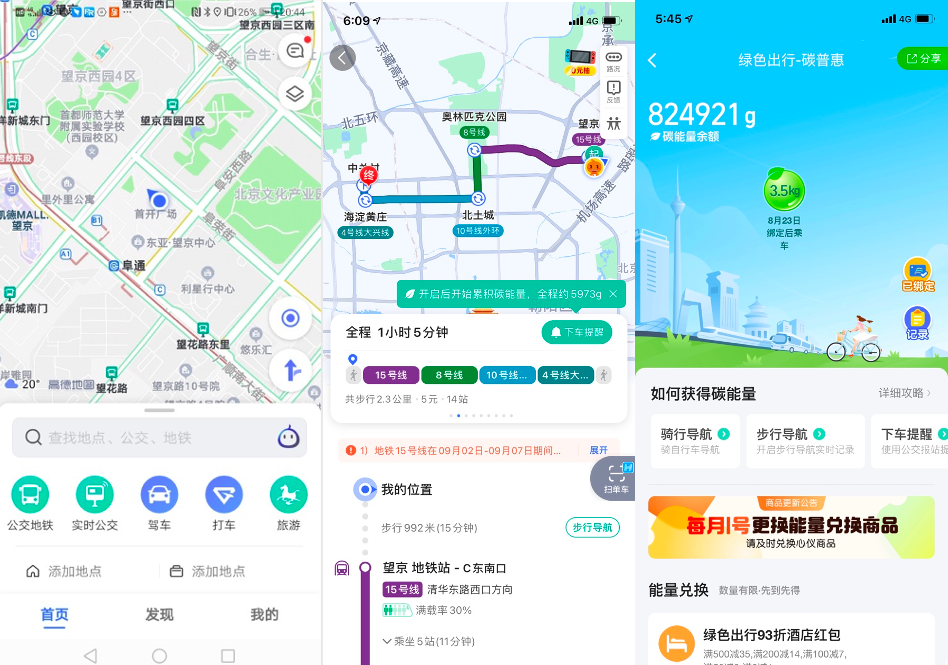
Alibaba CEO Daniel Zhang at World Internet Conference Wuzhen Summit 2021
Alibaba Group Chairman and CEO Daniel Zhang elevated environmental, social and corporate governance (ESG) and “common prosperity” to the group’s list of core corporate responsibilities, stressing the group’s commitment to positively impacting society and the environment.
The Hangzhou-headquartered group will make these goals integral to its operations, while it continues to pursue its three-pronged business strategy focused on globalization, domestic consumption and technological innovation powered by cloud computing.
“We have the determination and confidence in our capability to build a platform economy that’s healthy and regulated,” Zhang said during the annual World Internet Conference – which opened in China’s eastern city of Wuzhen on Sunday.
Zhang’s remarks follow the company’s announcement earlier this month to invest RMB100 billion (US$15.5 billion) in shrinking China wealth gap – a nationwide drive that’s come into greater focus after President Xi Jinping pledged to make solid progress towards common prosperity by 2035.
“The goal of helping all participants grow their abilities to start a business and to increase their income – the idea of moving forward together with society – has driven us for the past 20 years and will continue to guide us. It is an unwavering decision that we’ve made for the future,” he added.
Zhang revealed more specific steps that Alibaba will take as part of its common prosperity push at Sunday’s event.
To make digital technology more inclusive and easier for rural communities to reap its benefits, Alibaba launched an initiative to cultivate tech talent in developing areas. It aims to foster more than 200,000 technical experts through the program.
The company will also dispatch a group of tech-savvy employees, dubbed “rural revitalization technology officers,” into remote villages to provide technical support and training.
As of September, Alibaba has already assigned 20 staff to oversee projects “from the frontlines” across China’s countryside. They’ve since worked on projects including everything from helping farmers create their own brands for agricultural produce to offering training for new types of jobs, including e-commerce customer service and data-labeling for artificial-intelligence algorithms.
“If we can help villages retain talent, equipping them with the know-how and the means to work and run their businesses at home, they will be able to develop their own core industries and see long-term, visible change,” said Zhang.
Zhang said ESG has become an important standard for companies globally. It has taken on an even more significant, broader meaning for a platform enterprise such as Alibaba, which looks to develop a unique ESG framework that is global in scope but also rooted in tackling social issues closer to home.
Against this backdrop, Zhang said Alibaba has designed its net-zero plan building on China’s dual carbon goals – the country’s pledge to reach peak emissions before 2030 and achieve carbon neutrality by 2060.
He said starting last September, Beijing users of Amap, Alibaba’s mapping and navigation app, could see their carbon footprint from each time that they walk, cycle and take the bus or subway. Users can earn “energy points” for these low-carbon lifestyle choices, which can be redeemed for benefits, such as bus fares, shopping vouchers and memberships on video-streaming platforms.

“We believe that even the smallest of efforts can accumulate into a major force of change in society,” he said.
Zhang said that the biggest value of operating in the platform economy is that by helping others succeed, their efforts also translate into healthy growth for Alibaba. However, to grow in a truly sustainable way, the platform needs to be inclusive, fair and tolerant, with more participation from small and mid-sized businesses.
“Our common prosperity goal is not just a number,” stressed Zhang.
“It means that over the next five to 10 years – or longer – we will leverage our digital capabilities to promote meaningful development and help solve important problems facing society,” he said. “We will make use of replicable, measurable and sustainable ways to fulfill our promise.”
To receive the latest news directly in your inbox, sign up for the weekly Alizila newsletter




